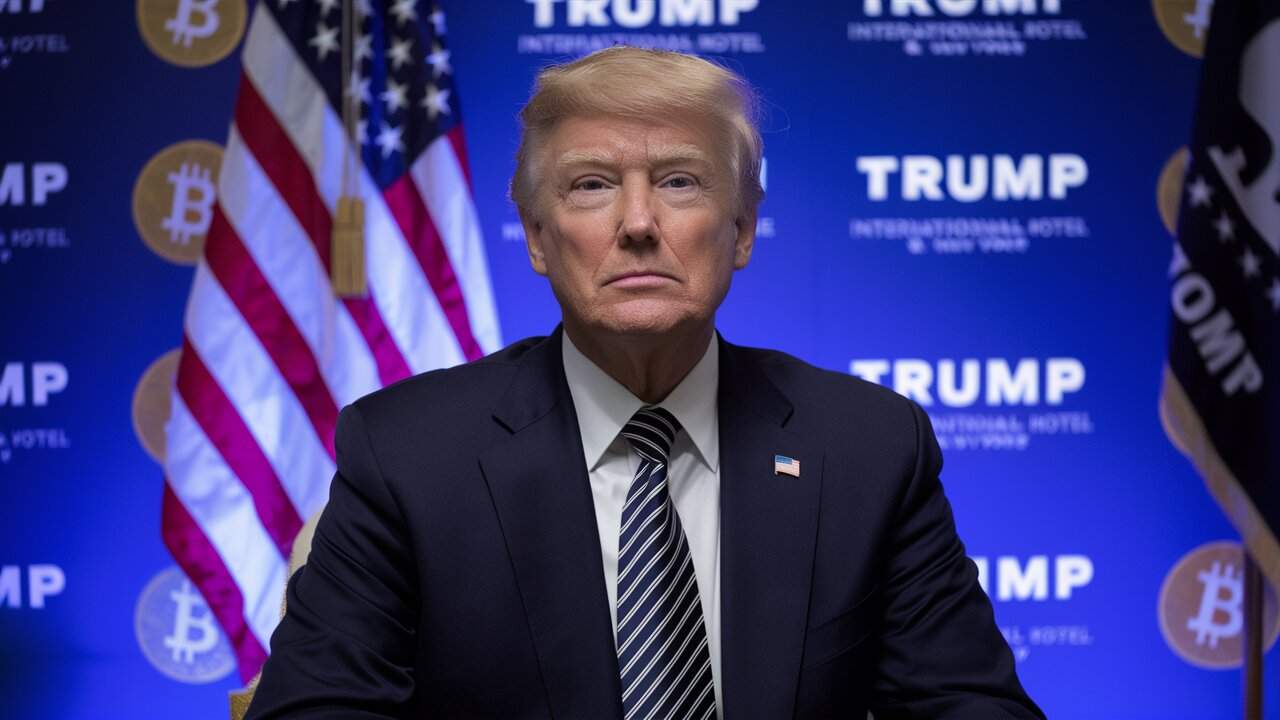
Estimated reading time: 7 minutes
Developments in the international cryptocurrency market showcase robust growth trends and regular shifts. Digital currencies function as innovative instruments that affect financial operations and investments worldwide. This evolution transitions financial services from traditional central financial institutions, making them closer and, in many instances, more efficient than the conventional banking sector. The outlook for blockchain technology is promising: although it is still evolving, its application in various sectors like banking, finance, and governance improves annually.
The stability that Africa is adding to the cryptocurrency market is increasingly vital. Although the region’s cryptocurrency turnover is modest compared to the global average, it increases cryptocurrency adoption. It ranks among the top countries or even regions worldwide. A recent surge in such FinTech services has occurred due to various factors. These include the high cost of sending money across borders, currency volatility, and a young, tech-savvy customer base.
Cryptocurrency usage in Africa
The availability of mobile payment solutions such as M-Pesa considerably enhances the probability of adopting cryptocurrencies in Africa. Ranked fifth globally, Kenya’s M-Pesa shows that the population is ready for blockchain and crypto solutions to their financial challenges. Many felt that using mobile payments for fiat currencies is a convenience and, therefore, an extension of using digital currencies, especially in places with little to no access to regular banking systems.

However, it is important to note that Africa has caught the attention of technology industry leaders. Guars points out that this is especially true in digital finance. Even Jack Dorsey, Former CEO of Twitter and Square, has shown a relentless interest in the continent. He plans to spend several months in Africa exploring new ideas in IT, digital business, technological startups, and possibly blockchain technology. His interest also signals a growing trend where established, large tech firms focus on Africa’s emerging, profitable tech front, including cryptocurrency.
Related: Which African Countries Ban Crypto?
Some of the specific African cryptocurrencies and projects
Akoin: Among the various projects proposed by the artist ‘Akon’ in francophone Africa, Akoin is notable. It will be the currency for the planned smart city, Akon City, in Senegal. This cryptocurrency aims to support social and economic development across Africa. It offers people who primarily use a cash-based economy a stable currency option. Akoin will enable users to transact with other citizens in Akon City and across the continent. This aims to further the agenda on financial inclusion.
eNaira: It is worth noting that the eNaira is an African digital currency that Nigeria initiated through the central authority. The eNaira launched in October 2021 as a digital version of the physical Naira to enhance economic efficiency with cheaper, faster, and more secure transactions. It also represented a significant advancement in adopting electronic currency as national money. It is expected to boost the Nigerian economy by simplifying transaction procedures and involving a wider population in financial activities.
Also read: Do Kwon and Terraform Labs Agree on $4.5B Settlement with SEC Ending Fraud Case
The regulatory framework of cryptocurrencies in Africa
Nigeria’s Regulatory Framework: New guidelines for Virtual Assets Service Providers (VASPs) recently changed Nigeria’s policy towards cryptocurrencies. After a somewhat notorious two-year absence, it has prompted a definite shift in the regulatory climate. CBN governor, in his efforts to regulate the activities of cryptocurrencies and related services in Nigeria, stated new comprehensive guidelines for the operations of cryptocurrencies. These guidelines act as measures that will enable secure and effective e-commerce transactions and, at the same time, solve problems like money laundering and financing terrorism.
South Africa’s Regulatory Approach: South Africa strives for a neutral cryptocurrency platform. The purpose is to promote the crypto industry’s revolution and prevent possible problems connected with digital currencies. This approach engages the South African Reserve Bank and other regulatory bodies. They aim to establish a policy that outweighs the profitability of crimes and risks in the cryptocurrency market for South African investors and the broader economy. Observers note that South Africa, one of the progressive nations, could be a model for others. This includes other African countries keen to embrace the benefits of digital currencies while ensuring economic stability.

Challenges and opportunities
Challenges
Regulatory Uncertainty: Most African countries have yet to formulate effective cryptocurrency regulations. This uncertainty can discourage the use of capital and the introduction of related financial products, as companies and individuals might face exclusion or policy changes in the future.
Financial Risks: The primary use of most cryptocurrencies is well known for their high fluctuation in value. This poses the danger of a particular user encountering fluctuations they cannot handle due to their economic stability or knowledge. Furthermore, fraud and scams are always likely, especially since these assets are relatively new and often rather complicated.
Technological Infrastructure: However, it is crucial to understand that a considerable amount of the African population still does not have a stable internet connection and, thus, proper IT proficiency. This digital divide may slow cryptocurrency adoption and effective utilization, given its reliance on internet connectivity and digital literacy as key elements.
Opportunities
Financial Inclusion: Most people in Africa are not financially included, but cryptocash products offer an opportunity to include the socio-economically deprived populace on the continent physically. Due to their exclusion from the existing banking system, cryptocurrencies can advance banking services for distant or excluded population groups (Tokenist).
Economic Growth: Cryptocurrencies can also eliminate the intermediary, lower transaction fees, and enhance cross-border trading. They provide a means of hedging against factors such as devaluation and inflation of local currencies, a major issue in some African nations.
Also read: Intel Partners with AfDB to Boost AI Skills in Africa
Future prospects
Potential for Widespread Adoption: The prospects for developing cryptocurrencies into universally accepted means of payment in Africa are quite bright due to the shared characteristics of the population, which are young and malleable, as well as a constantly developing mobile Internet. As technologies advance and the legal status of Internet money systems clarifies, people and companies interested in expanding beyond traditional banking are expected to adopt electronic money gradually.
Impact on the African Economy: Cryptocurrencies’ effect on the African economy may become considerable as the country’s local currencies are unpredictable, and the operations costs aren’t low; moreover, international cooperation may become less complicated due to adopting cryptocurrencies. This could positively affect increasing economic activities coupled with foreign investment.
Role of International Partnerships and Investments: It will be important to acknowledge that relationships with countries and investments from all over the globe will define cryptocurrency’s future in Africa. Global tech firms and financial institutions can contribute to developing more effective structures and the growth of local talent while maintaining high-security standards. Furthermore, these partnerships help set up standards and norms to serve the two ends of innovation and a secure environment.
Conclusion
Therefore, Cryptocurrencies in Africa bring revolutionary societal value that could completely overhaul the African region’s financial market and economic development. Projects like Akoin and eNaira are setting precedents that lead to improved regulatory legislation and heightened interest from other countries. However, to fully realize this potential, addressing threats such as regulatory issues, financial risks, and the digital divide is necessary.
Looking at the unclear future of Cryptocurrency in Africa, all the stakeholders ranging from government, private enterprises, and international partners, it is relevant to undertake daily research and monitoring. This will help to optimize the use of digital currencies and avoid the possible negative impacts equally. Thus, a sense of partnership will be critical as Africa seeks and creates steady and sustainable conditions for the development of digital finance.
Also read: Chinese Student Convicted of Crypto Fraud on Binance’s BNB Smartchain
FAQs about African cryptocurrency?
The artist Akon developed Akoin, a cryptocurrency intended to be the main currency in the planned smart city, Akon City, in Senegal. It aims to provide a stable currency alternative for African nations and drive financial inclusion across the continent.
The Central Bank of Nigeria launched the eNaira, Nigeria’s digital currency. It represents a digital version of the physical Naira and aims to provide a more efficient, inclusive, and secure form of currency to facilitate transactions and boost the national economy.
Regulatory approaches vary across Africa. Nigeria recently updated its guidelines to manage Virtual Assets Service Providers, ending a previous two-year ban. South Africa is working on a balanced regulatory framework to encourage innovation while managing risks associated with digital assets.
Key challenges include regulatory uncertainty, which can deter investments; financial risks associated with volatility and scams; and a lack of technological infrastructure, particularly in rural or underdeveloped areas.
They can help build the necessary infrastructure, establish regulatory frameworks and foster innovation. Collaboration with global tech and financial leaders can also provide expertise and investment, accelerating the development and secure adoption of cryptocurrencies across the continent.
Also read: Gala Games Recovers $23 Million in Ethereum
Discover more from The African Crypto
Subscribe to get the latest posts sent to your email.









